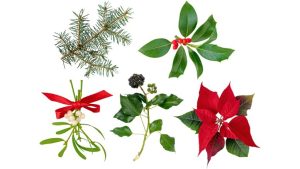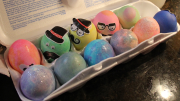Deck the halls with pet safety: A guide to avoiding toxic holiday plants
Embracing the festive spirit, we eagerly adorn our homes for the Christmas season annually. Yet, it’s crucial to be aware of potentially harmful holiday plants that can pose risks to our pets.
From mistletoe to the Christmas tree itself, numerous holiday plants can be toxic to our furry friends. Here, we’ll highlight eight of the most hazardous ones, offering insights to ensure your pets’ safety not only during the holidays but throughout the year.

Christmas Trees
If you’ve opted for a real tree this season, exercise caution. While pets generally don’t consume Christmas trees, the pine needles can irritate their stomach lining, causing excessive drooling. Avoid letting your pets play around real pine needles, which can harm their eyes and skin if accidentally poked.
Mistletoe
A Christmas staple, mistletoe must be kept out of reach of pets. Ingesting this toxic plant can lead to gastrointestinal disruptions, dangerously low heart rates, and breathing difficulties. Immediate veterinary attention is necessary if you suspect your pet has consumed mistletoe.
Holly
Used for decoration, holly poses a threat not only to pets but also to children. Ingesting holly berries can lead to vomiting, diarrhea, and low energy. Even artificial holly plants should be kept away from pets due to the potential choking hazard.
Lilies
Highly toxic to cats, lilies can be unwittingly gifted despite their dangers. There is no cure for lily poisoning in cats, emphasizing the importance of immediate medical attention to improve survival chances.
Amaryllis
Containing harmful substances, Amaryllis can cause gastrointestinal problems, vomiting, lethargy, and tremors. Exercise caution, especially with the plant’s bulb, which is more toxic than the flowers and stalk.
Daffodils
Similar to Amaryllis, daffodils can induce vomiting, diarrhea, depression, and abdominal pain. Keep them at a safe distance from pets and seek medical assistance if ingestion is suspected.
Poinsettia
Contrary to common belief, poinsettias are not highly toxic. While the sap can cause irritation and upset stomach in severe cases, a high quantity ingestion warrants concern. Symptoms usually subside quickly.
Christmas Cactus
Though not toxic, Christmas cactus can cause mouth injuries and gastrointestinal irritation if ingested. Limit access to prevent issues, and symptoms should subside promptly.
This awareness of toxic holiday plants enables safer home decorating for pet owners. Consider planting pet-friendly alternatives if your pets tend to interact with plants.
Wishing you and your pets a joyous holiday season from Comfy Cozy Pet Sitting!







Be the first to comment on "Deck the halls with pet safety: A guide to avoiding toxic holiday plants"